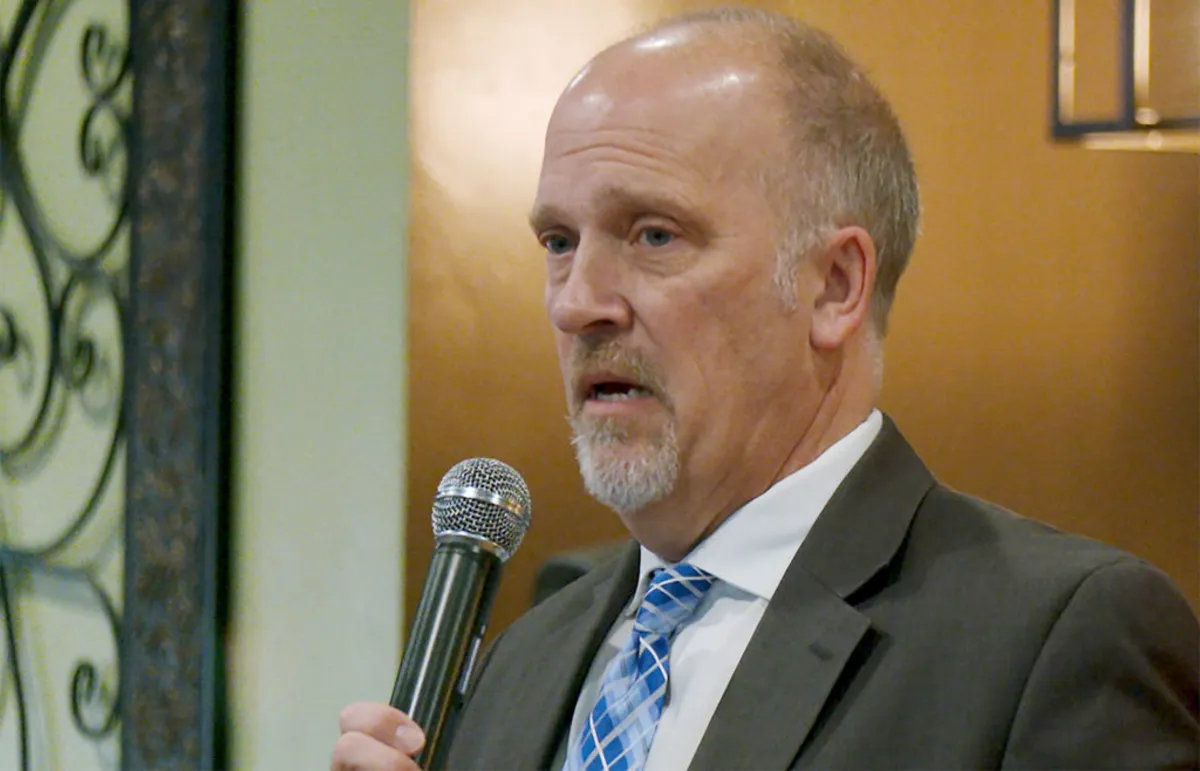
In a significant political event in Wisconsin, the recent Supreme Court election saw the liberal candidate Susan Crawford emerge victorious, prompting her opponent, Brad Schimel, to concede in a timely manner. As the first news outlets began to report on Crawford's win, Schimel received a call from Crawford, marking a moment of acceptance in today's polarized political climate.
Following his concession, Schimel took the stage at his watch party, where he faced an angry crowd. Shouts of “Cheater” erupted in response to his loss, but Schimel calmly dismissed the accusations, urging his supporters to “accept the results.” This moment highlighted the challenges of modern elections, where distrust and allegations of fraud often overshadow the democratic process.
Schimel’s concession stands out in an era where acceptance of election results has become fraught with tension. As noted by Jeff Mandel, general counsel of the liberal firm Law Forward, such a concession should not be remarkable, yet it is a welcome act of integrity in the current political landscape. The past few years have seen numerous accusations of voter fraud from both sides of the aisle, particularly following the contentious 2020 presidential election.
The political atmosphere has been charged with misinformation, especially since former President Donald Trump propagated baseless claims of election fraud after losing to Joe Biden. Schimel's concession in the face of his loss to a liberal majority in the Wisconsin Supreme Court was a significant departure from the behavior exhibited by some candidates in recent elections, who have delayed conceding to cast doubt on the electoral process.
By conceding promptly, Schimel avoided falling into the trap of misinformation that plagued the aftermath of the 2020 election, where numerous individuals falsely accused innocent election workers and voters of fraud. His decisive acknowledgment of the results serves as a stark contrast to other Republican candidates, such as Eric Hovde, who took weeks to concede after losing a Senate race.
The implications of this election reach beyond mere numbers. As Schimel noted to his supporters, “The numbers aren’t going to turn around.” His acceptance of defeat reflects a broader understanding of electoral integrity, an essential component of democracy. In contrast, other Republicans, such as Jefferson Griffin in North Carolina, continue to challenge election outcomes despite clear results.
While figures like Elon Musk have injected significant funding and influence into the election process, their involvement has also sparked controversy. Musk’s claims of voter fraud and his financial contributions to the Wisconsin Supreme Court race illustrate the complicated intersection of money, politics, and public trust in elections.
Despite the contentious atmosphere, many Republicans at Schimel's watch party expressed admiration for his behavior. Supporters praised his class and dignity in accepting the results. This reaction underscores a pivotal moment for the Republican Party, as some members advocate for a return to traditional values of respect and acceptance in the electoral process.
Ultimately, Schimel's concession is a powerful reminder of the importance of upholding democratic values, even in defeat. As Ari Mittleman from the nonprofit Keep Our Republic noted, elections should be viewed as straightforward as a sports game, where the final score is accepted. The ability to concede gracefully is a cornerstone of democracy, and Schimel’s actions may set a precedent for future elections in Wisconsin and beyond.
In the end, the night concluded with Schimel humorously requesting a drink from the bar, showcasing his ability to maintain a sense of normalcy amidst the political chaos. This episode serves as a reminder that democracy thrives on acceptance, integrity, and respect for the electoral process.